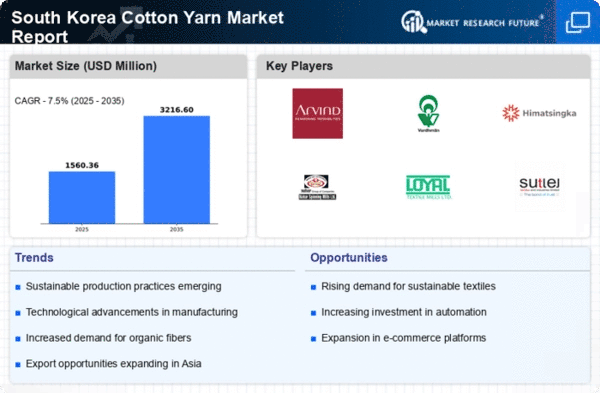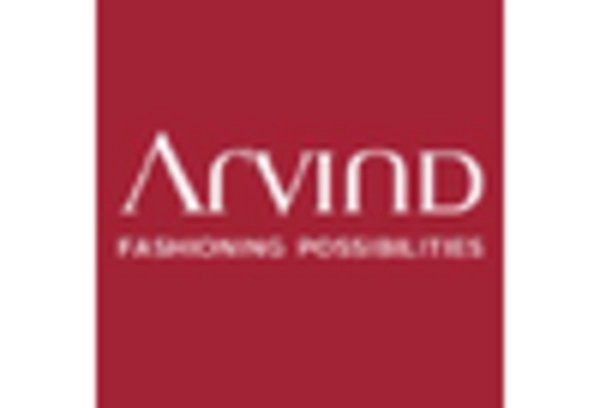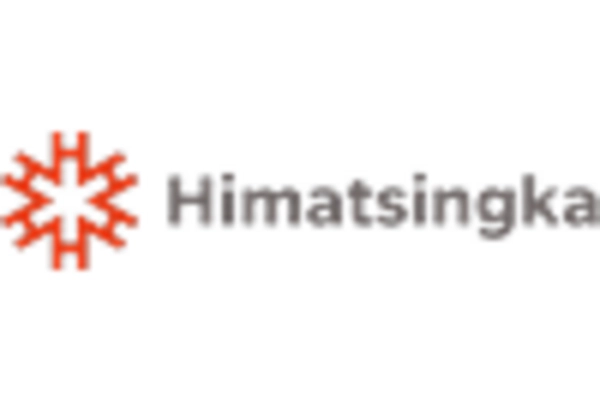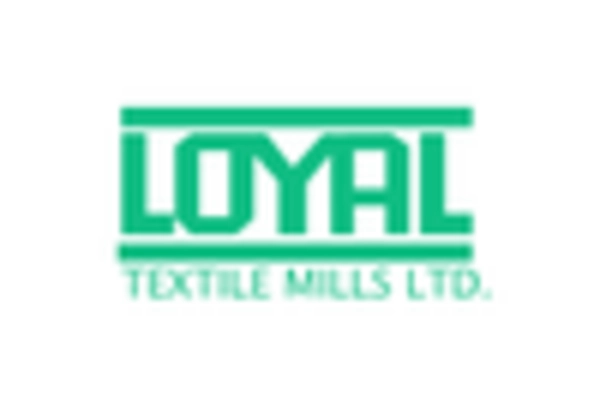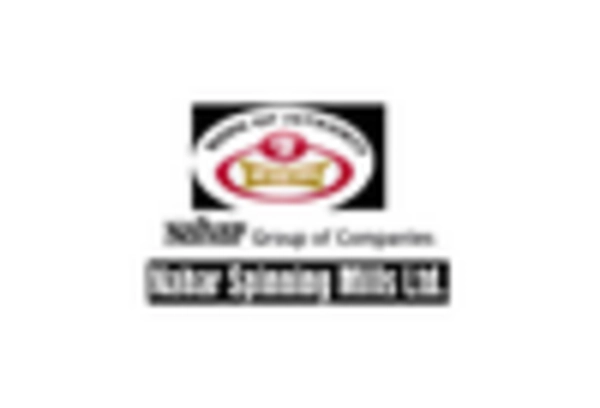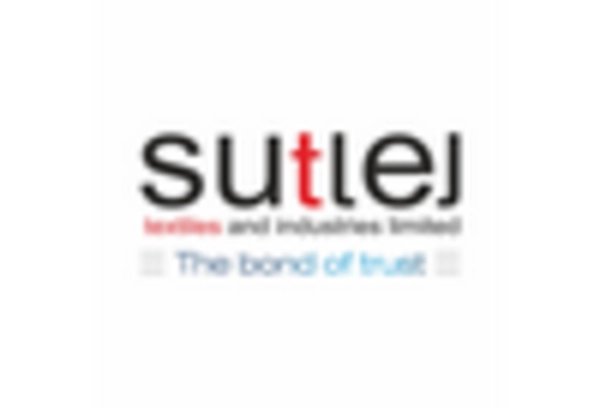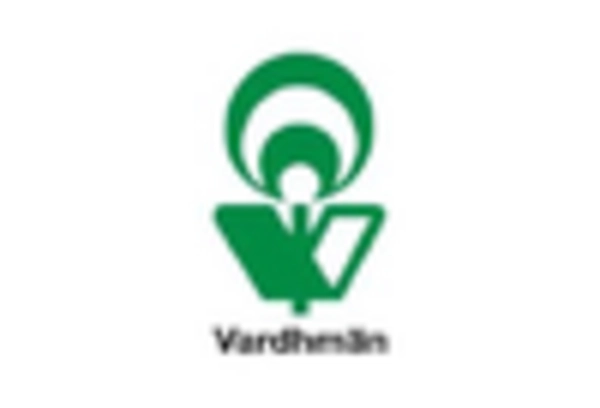The cotton yarn market in South Korea exhibits a competitive landscape characterized by a blend of innovation, strategic partnerships, and regional expansion. Key players such as Arvind Limited (IN), Vardhman Textiles Limited (IN), and Himatsingka Seide Limited (IN) are actively shaping the market dynamics. Arvind Limited (IN) focuses on sustainable practices, leveraging eco-friendly production methods to appeal to environmentally conscious consumers. Vardhman Textiles Limited (IN) emphasizes technological advancements in manufacturing processes, enhancing efficiency and product quality. Meanwhile, Himatsingka Seide Limited (IN) is pursuing strategic partnerships to expand its market reach, particularly in the Asia-Pacific region, thereby enhancing its competitive positioning.The business tactics employed by these companies include localizing manufacturing to reduce lead times and optimize supply chains. The market structure appears moderately fragmented, with several players vying for market share. However, the collective influence of these key players suggests a trend towards consolidation, as companies seek to enhance their operational efficiencies and market presence through strategic collaborations and mergers.
In October Arvind Limited (IN) announced a partnership with a leading technology firm to integrate AI-driven solutions into its production processes. This strategic move is likely to enhance operational efficiency and reduce waste, aligning with the growing demand for sustainable practices in the textile industry. The integration of AI could potentially revolutionize production timelines and quality control, positioning Arvind as a leader in innovation within the market.
In September Vardhman Textiles Limited (IN) launched a new line of organic cotton yarn, catering to the increasing consumer preference for sustainable products. This initiative not only diversifies their product portfolio but also strengthens their brand image as a responsible manufacturer. The introduction of organic yarn is expected to attract a niche market segment, thereby enhancing Vardhman's competitive edge.
In August Himatsingka Seide Limited (IN) expanded its operations by acquiring a local textile manufacturer in South Korea. This acquisition is anticipated to bolster its production capacity and facilitate better access to the local market. By enhancing its operational footprint, Himatsingka aims to leverage local insights and consumer preferences, which could lead to increased market share and profitability.
As of November the cotton yarn market is witnessing trends such as digitalization and sustainability becoming central to competitive strategies. Companies are increasingly forming strategic alliances to enhance their technological capabilities and market reach. The shift from price-based competition to a focus on innovation, technology, and supply chain reliability is evident. Moving forward, competitive differentiation will likely hinge on the ability to adapt to these trends, with companies that prioritize sustainable practices and technological integration poised to lead the market.


